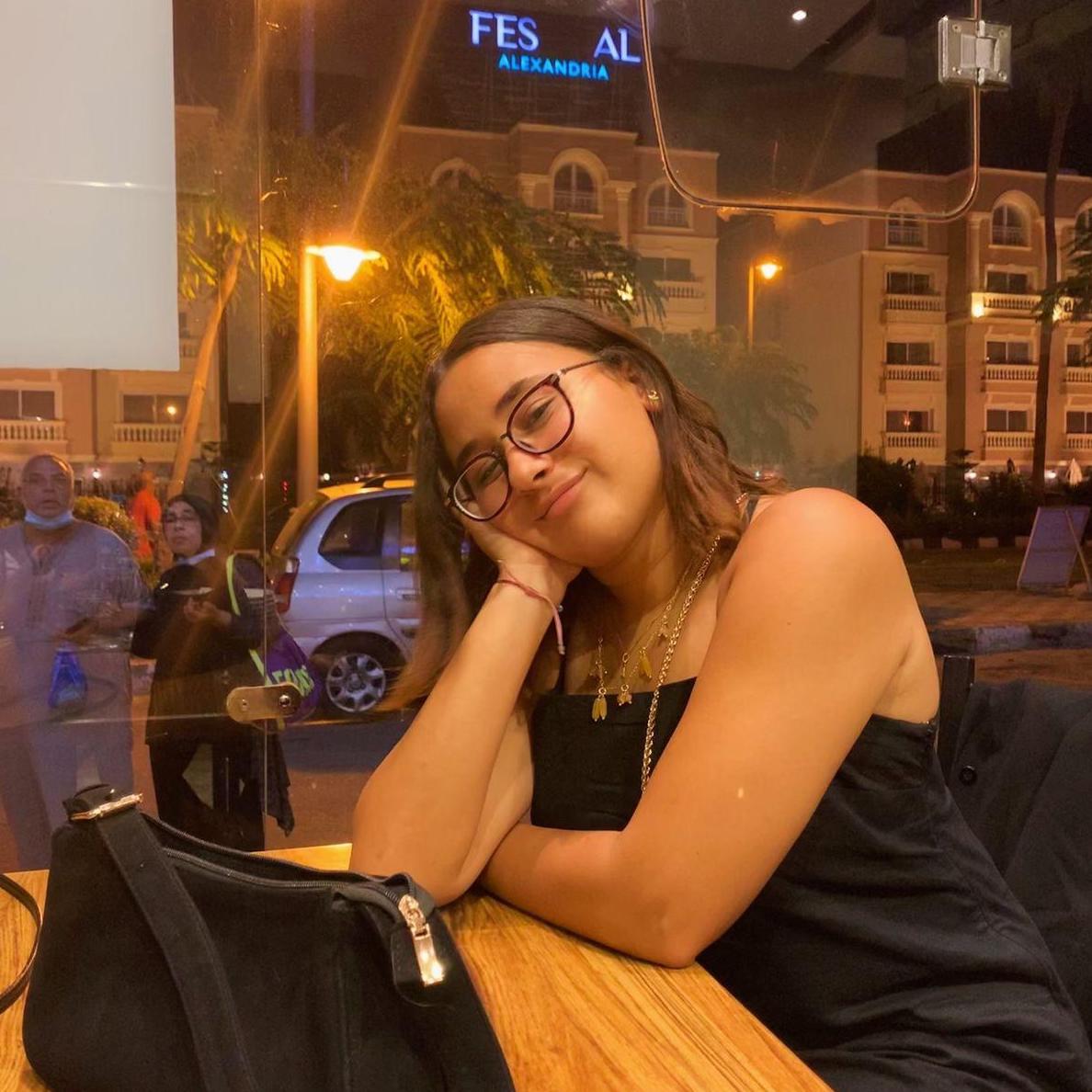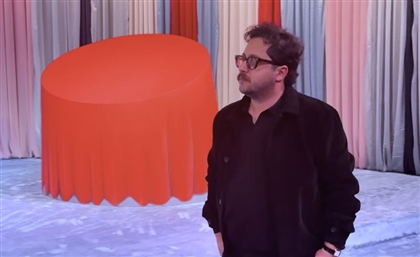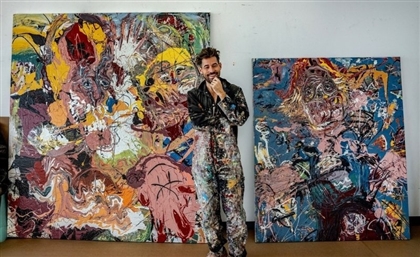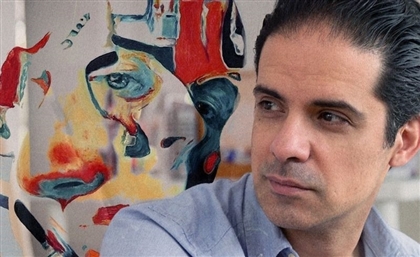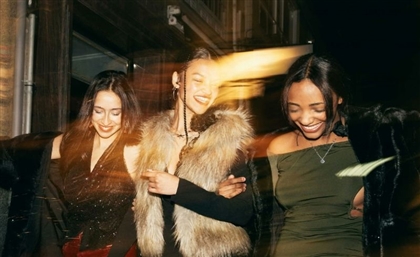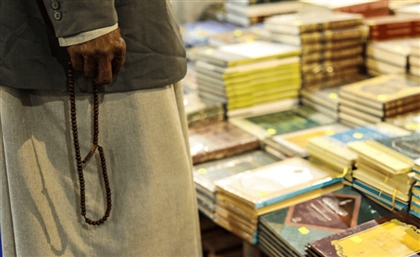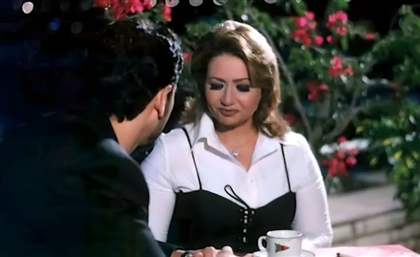French-Syrian Artist Bady Dalloul Brings Whimsical Worlds to Dubai
Dalloul's exhibited body of work dates back to when he was a mere child, creating imaginary worlds - or reflecting on his own - in old diaries.
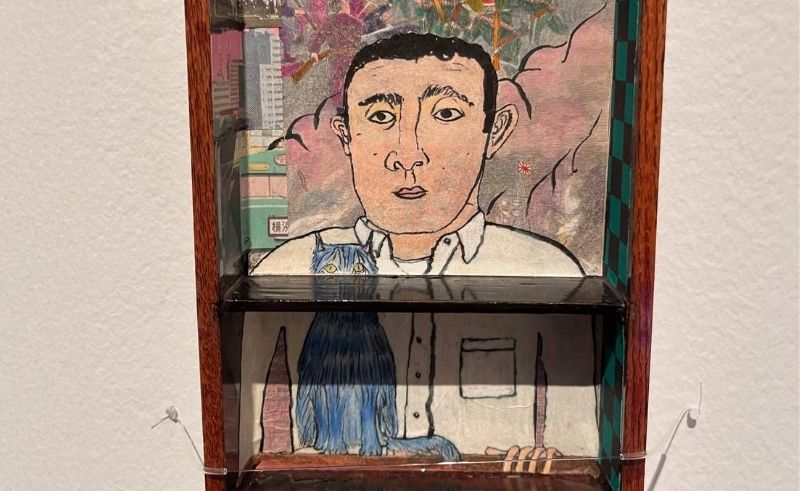
At first glance, French-Syrian artist Bady Dalloul’s art is joyful. His intricate, colourful drawings of imaginary lands and the people that would inhabit them, often paired with newspaper and magazine cutouts, feel familiar; they’re whimsical, filled with a childlike wonder, and yet universal.
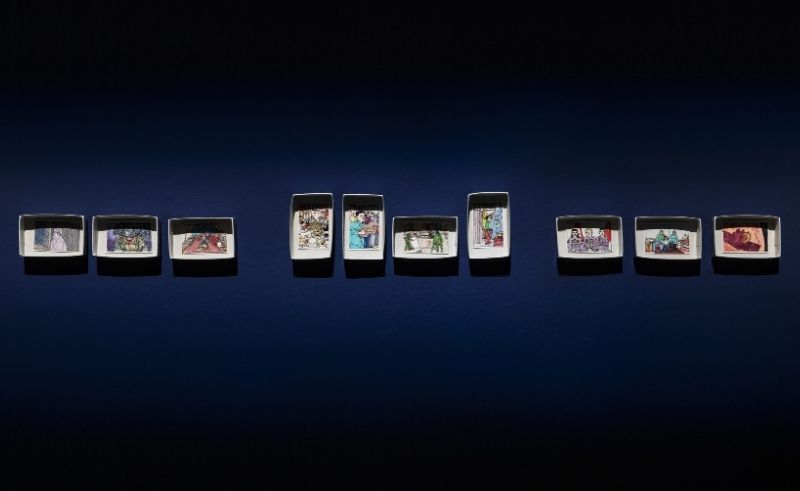
The reason Dalloul’s art carries this young whimsy is in part because his growing portfolio was born when he was only a child playing with his younger brother, Jad. Throughout summers spent in their family homes in Damascus, the two mapped out their own fictional countries in old leather-bound diaries. Why this specific medium? Because, as Dalloul himself explains to SceneNowUAE, “they looked like books, so everything written inside could be legitimate.”
The Dalloul brothers went on to create BadLand and JadLand (the former, of course, being ruled by Bady who knew a lot of French but not much English at the time). Although the countries were fictional, the material in their “official” files was not. “These diaries consisted of used newspaper, pictures, capital plans, drawings. A lot of elements in them looked like what we were seeing in Syria, during the early Assad regime. Others were inspired by what we experienced in France. The stark difference between both countries is what catalysed me to start drawing more seriously.”
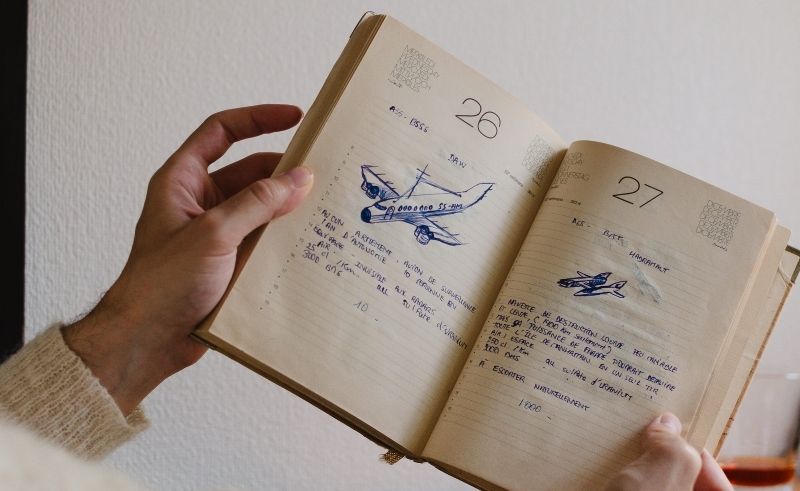
Bady continued to play the game on his own, even after Jad lost interest. Today, his treasured manuscripts are often put on display at exhibitions, including his current exhibition at Jameel Arts Centre (running until February 22nd, 2026), as a portrayal of young innocence, questions about identity, and childlike understanding of physical and metaphorical borders between cultures and landscapes.
“When I started collecting stories, reading about history, and experiencing events firsthand, I drew them just as they were," Dalloul shares with SceneNowUAE. "Sometimes, I would piece my narrative together from what I heard from family members, friends, what I saw on TV. And then, I would translate my understanding of the word around me into drawings.”
After a decade of decoding life through the lens of an artist, Dalloul went on to study fine arts at Beaux-arts de Paris, where he “realised what I was doing as a kid could be done in a different way, a more mature way.” For one of his projects at university, Dalloul created a video that begins with him tracing borders on a map. These borders are continually erased and then resketched, until the map is rendered meaningless, and the borders are completely dissolved, reflecting his perception of colonialism in the Levant. This project is almost a reflection of Dalloul's earlier games, where his imaginary land took on multiple geographical shapes, constantly changing. After graduating in 2015, Dalloul went to Japan on an apprenticeship.
“My time living in Japan allowed me to understand the link between the migration of my parents in the 1980s, my relationship to Syria, and my own travels in Tokyo. The unexpected parallels created between the three allowed me to understand my history and the history of the region more.”
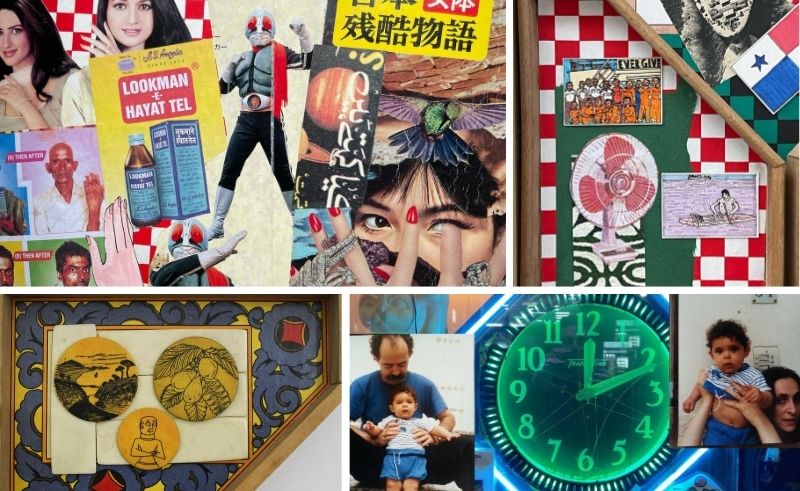
During his time in Japan, Dalloul put together a scrapbook, reflecting on the parallels between his Levantine culture and Japanese culture, in French, Arabic and English. In French, he tells personal anecdotes, in English, he tells the cold facts of history, and in Arabic, he puts text that he simply doesn’t want to translate, like text from the visit of Palestinian president Mahmoud Abbas to Hiroshima. “Sometimes, the spreads are very visual, and sometimes they invite the viewer to stop and read between the art.”
On one spread, Dalloul tells the story of a Japanese schoolgirl who passed after suffering radiation from the Hiroshima bombing, whose wish was to create a thousand origami. In between origami structures, Dalloul creates an imaginary conversation between what he expects she would’ve seen if she were alive today, and his younger self. Other spreads similarly echo the message that, always, children are the first to be impacted by war. Dalloul's more mature projects still carry a sense of imagination, of the wonder that helped him understand as a child.
On another spread, Dalloul shows pictures of an Egyptian officer signing an armistice with the Zionist occupation in 1984, and of a Japanese officer signing a surrender to the American army after the Second World War. “They're both standing as they sign, to indicate their reluctance. In the end, they do it for their countries.” The spread also includes the first page of George Orwell’s Animal Farm (1945), in which it is infamously claimed that ‘Four legs good, two legs better’.
To tell the tales he does, Dalloul has to strike a sensitive balance between what he learns through an understanding of global history, what he himself has experienced, and what others have. “Over time, I’ve learned to recognise how much of history I can reveal, and how my drawings can carry those stories. It’s a delicate balance—expressing myself while honoring the sensitivities of the past. In doing so, I’ve become a custodian of those memories."
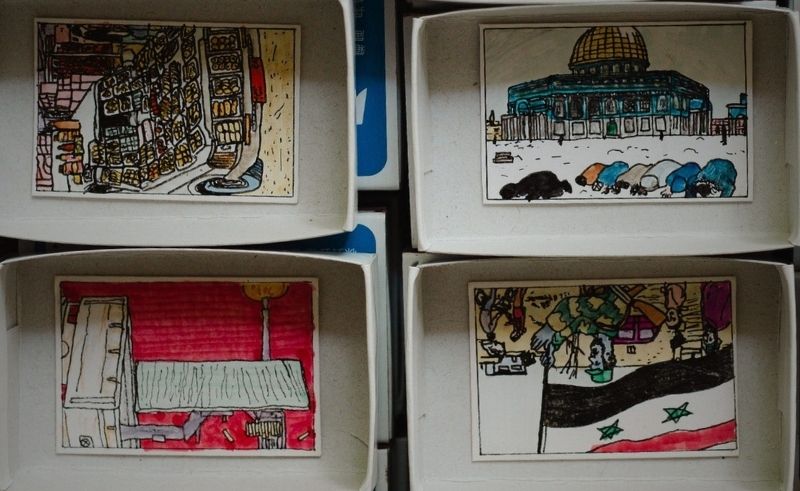
At his upcoming exhibition at Jameel Arts Centre, Dalloul presents his scrapbook in the form of a video, where he turns the pages with his hands. “The notion of time is important in my practice. Sometimes, it is essential to have the viewer spend a certain amount of time observing certain pieces.”
The exhibition is expected to be as intimate as his art. The space itself is modelled after the shape of his current home in the UAE; people walk in and see a minute exhibition of illustrations done within matchboxes, each its own tiny world, and then continue to walk into a simulation of Dalloul’s personal space, where they can pick up and inspect his artwork. “I think that exhibiting in the UAE is very relevant to my body of work,” Dalloul reflects, “This is a country where foreigners are welcome; where the borders between cultures become malleable.”
- Previous Article SceneNoise x Power Horse: ‘Rap Ala El Tare2’ with Mosalem
- Next Article Inside Egypt’s Seven UNESCO World Heritage Sites
Trending This Week
-
Feb 12, 2026







